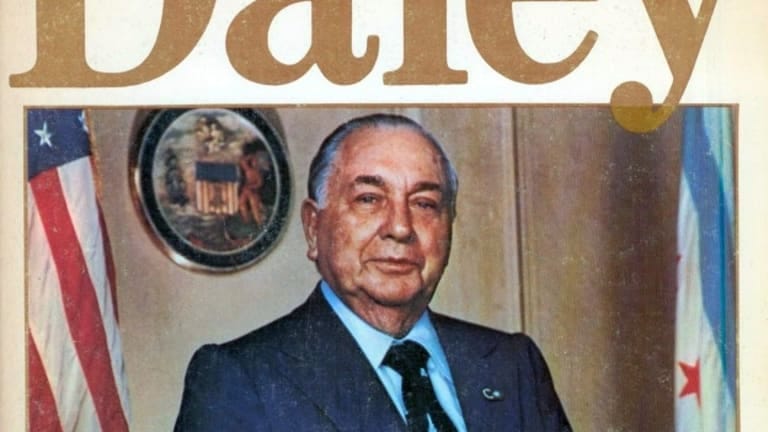Mike Royko’s short classic on Richard Daley, Boss, is in part the story of a powerless working-class American acquiring power by taking advantage of the non-institutional social structures into which he was born. The story is instructive for people seeking political power in America today.
Daley was born into an isolated ethnic enclave in which members rarely left the neighborhood even for work. The enclave brought with it the peasant prejudices of the old world, which were then naturally amplified in America’s diverse imperial setting:
With their tote bags, the immigrants brought along all their old prejudices, and immediately picked up some new ones. An Irishman who came here hating only the Englishmen and Irish Protestants soon hated Poles, Italians, and blacks. A Pole who was free arrived hating only Jews and Russians, but soon learned to hate the Irish, the Italians, and the blacks.
Out of this milieu emerged private athletic clubs that were instrumental in producing power players in politics and other disciplines. Daley’s athletic club, which was infamous during the 1919 Chicago race riot, functioned as a sort of gymnasium and academy for Irish men:
Daley belonged to a close-knit neighborhood club known as the Hamburg Social and Athletic Club. And this is what the riot study had to say of the club:
“Responsibility for many attacks was definitely placed by many witnesses upon the ‘athletic clubs’ including Ragen’s Colts, the Hamburgers, Aylwards, Our Flag, Standard . . . and several others. The mobs were made up for the most part of boys between 15 and 22.
“Gangs, particularly of white youths, formed definite nuclei for crowd and mob formations. Athletic clubs supplied the leaders of many gangs.”
In later years, Daley described the Hamburgs as something of a cross between the Boy Scouts of America and the YMCA, saying:
“Its purpose was social and athletic and some of the finest athletes, priests, and citizens of Chicago have been members.”
And Judge Lynch said: “It was a great debating place. We talked about the issues of the day, national affairs, local politics, and, of course, sports.”
Irish homogeneity led to Irish dominance of the Democratic party, and dominance of a democratic institution permitted Daley’s initial acquisition of power. In explaining his party man dedication, Daley asserted,
The party permits ordinary people to get ahead. Without the party, I couldn’t be mayor. The rich guys can get elected on their money, but somebody like me, an ordinary person, needs the party. Without the party, only the rich would be elected to office.
Royko then describes part of the machine Daley was able to create:
His police department’s intelligence-gathering division gets bigger and bigger, its network of infiltrators, informers, and spies creating massive files on dissenters, street gangs, political enemies, newsmen, radicals, liberals, and anybody else who might be working against him. If one of his aides or hand-picked officeholders is shacking up with a woman, he will know it. And if that man is married and a Catholic, his political career will wither and die. That is the greatest sin of all. You can make money under the table and move ahead, but you are forbidden to make secretaries under the sheets. He has dumped several party members for violating his personal moral standards. If something is leaked to the press, the bigmouth will be tracked down and punished.




100% absolutely based. I am digging into Fernando Wood over in 1850s NYC, as he was the first Mayor to publicly court newer Americans i.e. Germans and Irish in order to get into office.
I always found these 20th c big city ethnic machines to be interesting. They were sort of destroyed by the early progressive movement which sought to root out this sort of corruption in favor of non elected experts. On the other hand they may have sowed the seeds of their own downfall by their own antagonistic ethno narcism aimed against the old wasp ruling class. Their crusades to weaken the wasp class combined with aims to further ethnic gibs, mass democracy against Republicanism and looser immigration policy worked against them once they assimilated into the broader “white American” identity